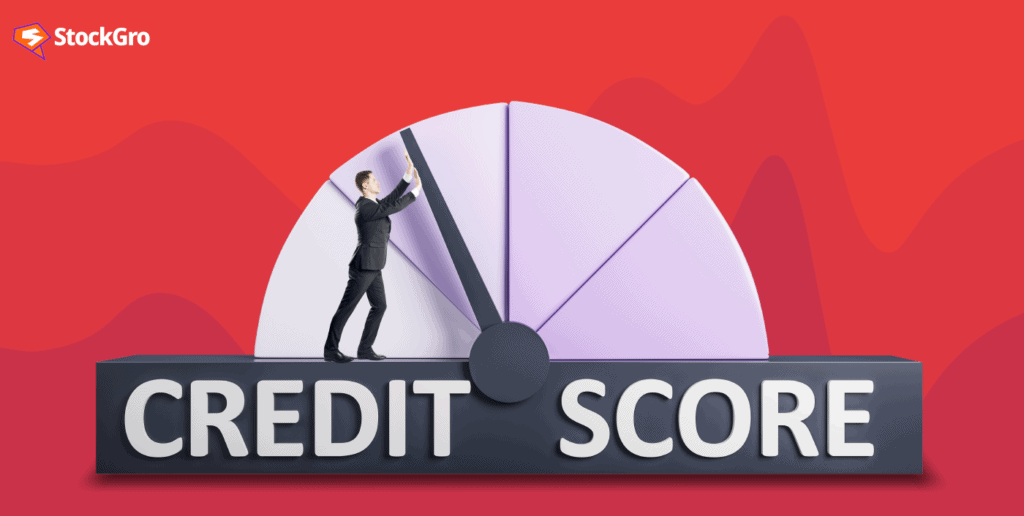
According to the report by Credit Literacy Index, in FY 22, more than 56.8 % of millennials monitored their credit score, compared to 48% in FY 21. According to experts, millennials are those born between 1981 and 1996 and those born in and after 1997 fall under the Gen Z category.
A healthy credit score is important for millennials, who keep tracking their scores regularly. One of the reasons why millennials prefer healthy credit score is to fall under loan eligibility criteria. Moreover, it helps them in getting credit cards and other tools.
OneScore, an app that monitors credit scores, witnessed a 26% decrease in late or postponed payments among millennials and Gen Z due to growing credit score awareness. Reportedly, consumers are quite credit-conscious and do their best to manage their credit health. This also helps them take credit card benefits or even get pre-approved loans.
What is a credit score?
Credit scores typically range from 300 to 900 and are three-digit numerical summaries of your credit history. It illustrates your creditworthiness based on prior repayment activity, such as your responsibility in making credit card and loan payments. Having a good credit score increases your chance of getting good interest loans in the future and credit card benefits.
You may also like: Understanding credit cards: What are they, and how do they work?
Why is credit score important?
Credit score plays an important role in presenting your ability to settle your loan. Any score above 700 is typically regarded as good score. Some of the reasons why maintaining a good credit score is important-
You become eligible for loans
- Loan eligibility is one of the benefits you can get by having a high credit score. It shows your history of making timely debt repayments and credit management expertise.
Qualify for a credit cards
- A good credit score will help you qualify and earn the benefits of credit cards. However, you must have your credit score above 750.
Lower interest rate
- One advantage of having a strong credit rating is that banks may be willing to provide you with low-interest rates loans.
Higher credit card limits
- Besides securing your low-interest rates on loans and credit cards, a high credit score enables you to apply for larger loan amounts. However, a poor credit score will lead to a smaller credit limit.
Helps with easy visa application
- A strong credit score can have a positive effect on your visa application. Most nations, including the United States, the UK, and others, check your income tax records while processing your visa.
Also Read: What is CAGR and how to calculate? [ Explained]
How can you maintain a good credit score?
Since you now know what benefits high credit scores can bring you, learning to maintain the same is important. Few ways to maintain a good credit score-
Paying your credit card bills and EMIs on time
- If you have any loans or have to pay credit card bills, make sure you pay on or before the due date. It can positively affect your credit card scores.
Resolve disputed transactions
- One way to improve your credit score is to resolve any disputed transactions presented in your credit report that do not belong to you. Connect with the credit bureau or your bank to report the issue.
Using a loan balance transfer
- A loan balance transfer involves moving your existing loan balance to a different account which will help get low-interest rates. It will help you bring some overall changes in the CIBIL score report, resulting in a high credit score.
Maintaining a healthy credit mix
- Always choose a variety of credit products to keep a respectable credit score because doing so balances the risk factor and results in a higher credit score. Banks don’t face any issues if applicants have a healthy mix of credit because they won’t be viewed as high-risk borrowers.
How to check your CIBIL score?
Checking CIBIL or credit score is simple. You can follow below steps-
- Visit CIBIL website.
- Select the “Get your CIBIL Score.”
- Now enter your log-in details, also attach any ID proof (pan card would work). Add your PIN code phone number.
- Click on “Accept and Continue”
- Your registered mobile number will receive an OTP. Type and continue.
- Click on “Go to dashboard” and you will be redirected to myscore.cibil.com.
- Log in and check your CIBIL score.
Also Read: How much tax do you pay on stock market gains?
What is a VantageScore?
Created by a joint venture of the three major credit bureaus – Equifax, Experian, and TransUnion – in 2006, VantageScore is a credit scoring model primarily used in the U.S.
Like any other credit score, these are also used to check and gauge a consumer’s creditworthiness. It is one of the two major credit scoring systems with FICO (Fair Isaac Corporation) scores.
VantageScore assigns a three-digit number from 300 to 850 that reflects the likelihood of a borrower repaying debt on time. Higher scores indicate a lower risk of default. Hence, a higher score is good.
What is a good VantageScore?
Here’s a brief breakdown:
- Excellent: 781 – 850
- Good: 661 – 780
- Fair: 601 – 660
- Poor: 500 – 600
- Very Poor: 300 – 499
These may vary based on the exact VantageScore model used by the agency.
Which information do credit ratings agencies not consider for scores?
Here are some metrics that shouldn’t affect your credit score:
- Income: This might seem counterintuitive, but incomes don’t get incorporated into your credit score directly. They do, however, impact how much credit you can be given access to through credit cards and personal loans.
- Your job title: Your employment status or job title doesn’t directly affect your credit score. However, a history of missed payments due to job loss might be reflected in your credit report and indirectly impact your score.
- Demographic information: Race, ethnicity, religion, gender, or marital status are not used in calculating your credit score.
Why are there different credit scores?
There are several reasons why you might notice different credit score numbers from different credit ratings agencies.
This is because there isn’t a single, universal credit score. Two main credit scoring companies dominate the market: FICO (Fair Isaac Corporation) and VantageScore. Each company uses its own proprietary model to analyse your credit report data and generate a score.
These models may weigh factors like payment history, credit utilisation, and credit age slightly differently, leading to potential variations in your score between FICO and VantageScore.
To gauge your actual credit score more accurately, we encourage you to take the opinion of several credit reports at once.
How do credit scores work?
Credit scores indicate how good you are with credit – that is, money lent to you. Scores are usually given on a scale of 300 to 850, with a higher score indicating more creditworthiness.
There are several inputs that go into determining what your score is. Since different agencies calculate scores slightly differently, all your scores might not always line up.
Here’s a breakdown of everything you must be careful of if you’re trying to rebuild your score:
- Payment history: This is the most significant factor that covers your history of on-time payments for credit cards, loans, mortgages, etc. Late payments and delinquencies significantly impact your score negatively.
- Credit utilisation ratio: This ratio indicates how much credit you’re using compared to your total credit limit. A high utilisation ratio (over 30%) suggests you might be overextended.
- Length of credit history: A longer credit history usually means that you have a better history of dealing with credit, which works in your favour.
- Credit mix: Having different types of credit accounts (credit cards, instalment loans, etc.) can positively impact your score.
- Recent inquiries: Multiple hard inquiries within a short period can slightly lower your score, as it suggests you might be applying for too much credit at once.
How is Gen-Z changing the scenario of the credit market in India?
Since Gen-Z is living in the age of digitization, they have easy access to guides to plan their financial decision. More and more youngsters are accessing credit cards. According to the Reserve Bank of India’s data, in the fiscal year March 31, 2023, credit card outstanding increased by 31%, or Rs 45,866 crore, to Rs 1.94 lakh crore, which shows the overall use of consumers’ unsecured loans for personal spending.
Similarly, the outstanding balance on credit cards or unsecured loans increased by 13% to Rs 1.48 lakh crore in fiscal 2022 from Rs 1.32 lakh crore in FY2021. It also represents how millennials are fuelling credit consumption in recent times in India. Moreover, lenders like financial institutes know the importance of this Gen-Z that is taking active steps toward business.
There is also a generational shift where millennials are highly conscious of credit scores. As per the Anuj Kacker, COO and Co-Founder of MoneyTap, a lending app, 70% of the company’s millennial clients are conscious of their credit ratings and credit conscious.
Moreover, the thought process of the “save first” mentality has given way “consume first and pay later” in millennials due to the increase in the use of credit for both living expenses and aspirations.
The growing awareness about good credit scores and responsible financial management among millennials enables them to get the benefits like pre-approved loans, low-interest rates, and others.
Final thoughts
Maintaining a good credit score is certainly important. With millennials becoming spenders, a healthy credit score will further push them toward responsible finance management.
![What is CAGR and how to calculate? [ Explained]](https://www.stockgro.club/blogs/wp-content/uploads/2023/06/what-is-cagr-in-share-market-768x387.png)
